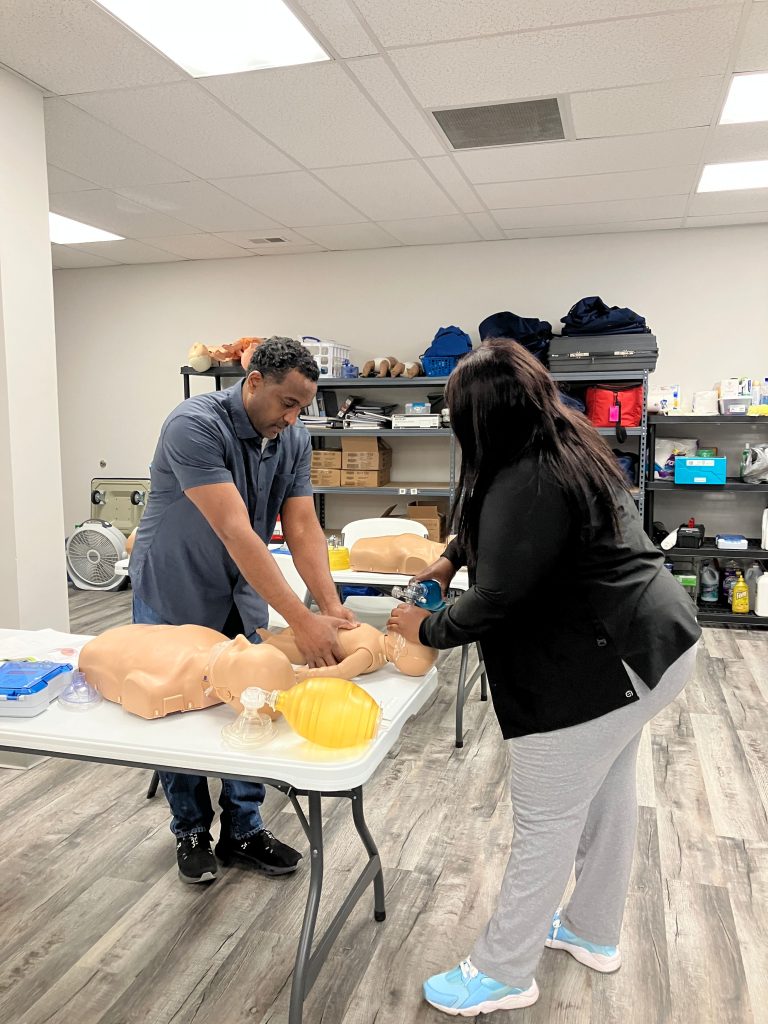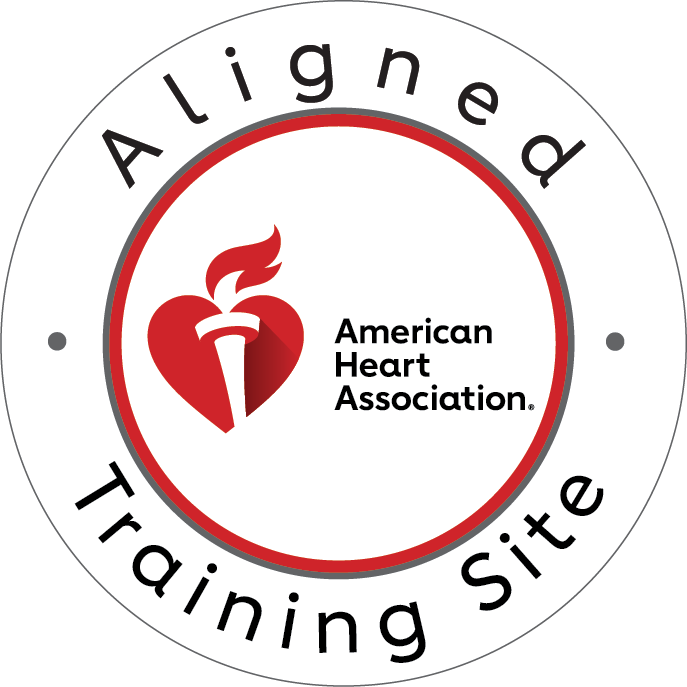Why BLS Certification is Crucial for Healthcare Professionals
In the fast-paced world of healthcare, every second counts, especially during life-threatening emergencies. A compelling statistic reveals that about 70% of out-of-hospital cardiac arrests occur in homes, and immediate CPR can double or triple the chances of survival. This underscores the crucial role healthcare professionals play in emergency response, highlighting the importance of Basic Life Support (BLS) certification.
BLS certification, provided by the American Heart Association (AHA), equips healthcare professionals with the essential skills and knowledge to handle critical situations effectively. From performing high-quality cardiopulmonary resuscitation (CPR) to using an automated external defibrillator (AED), BLS training is fundamental to saving lives. This article will delve into the top reasons why BLS certification is indispensable for healthcare professionals.
Ensuring Patient Safety
Immediate Response to Cardiac Emergencies
In healthcare settings, the ability to respond immediately to cardiac emergencies can make the difference between life and death. BLS certification ensures that healthcare professionals are trained to recognize and swiftly address cardiac arrest, stroke, and other urgent medical conditions. With the knowledge and skills acquired through BLS training, professionals can initiate immediate care while awaiting advanced medical support, significantly improving patient outcomes.
Life-Saving Skills
BLS certification imparts critical life-saving skills, including performing effective chest compressions, providing rescue breaths, and using an AED. These techniques are vital in maintaining circulation and oxygenation during cardiac and respiratory emergencies. By mastering these skills, healthcare providers can stabilize patients until more advanced care is available, enhancing the chances of survival and recovery.
Reducing Mortality Rates
Statistics indicate that early and effective BLS intervention can dramatically reduce mortality rates in emergencies. Studies show that for every minute CPR is delayed, the chance of survival decreases by 7-10%. BLS-certified professionals are trained to act quickly and efficiently, minimizing response times and maximizing the potential for positive outcomes. This proactive approach is crucial in emergency medicine, where timely intervention is key to saving lives.
Professional Competence and Confidence
Enhanced Skill Set
BLS certification is more than just a credential; it represents a significant enhancement to a healthcare professional’s skill set. The training covers critical aspects of emergency care, such as high-quality CPR, effective ventilation techniques, and the use of an AED. These skills are not only essential in hospital settings but also valuable in various healthcare environments, including clinics, nursing homes, and even during home care. By obtaining BLS certification, healthcare professionals ensure they are well-equipped to handle emergencies effectively, reflecting their commitment to providing the best possible care.
Increased Confidence in Emergencies
Emergencies can be chaotic and stressful, but healthcare professionals with BLS certification are better prepared to handle these situations with confidence. The hands-on training and simulations provided during BLS courses help build muscle memory and instill a sense of calm and control. This confidence is crucial not only for the healthcare provider but also for the patient, as a composed and confident caregiver can greatly influence the overall emergency response outcome. Knowing exactly what to do in a critical moment can save valuable time and lives.
Keeping Up with Standards
Healthcare is an ever-evolving field, with new research and updated guidelines continuously shaping best practices. The American Heart Association regularly updates its BLS protocols to reflect the latest scientific findings and improvements in emergency care. By maintaining BLS certification, healthcare professionals stay current with these changes, ensuring their knowledge and skills are aligned with the most recent standards. This ongoing education is vital for providing high-quality care and maintaining professional competence.
Legal and Ethical Responsibilities
Meeting Regulatory Requirements
Many healthcare institutions and regulatory bodies mandate BLS certification for various roles, including nurses, doctors, and emergency medical technicians (EMTs). Compliance with these requirements is not only a legal obligation but also a demonstration of a commitment to professional standards. BLS certification ensures that healthcare providers meet the necessary criteria to perform their duties effectively and legally, protecting both the professionals and the patients they serve.
Ethical Duty to Patients
Healthcare professionals have an ethical duty to provide the highest standard of care possible. BLS certification is a testament to this commitment, as it equips providers with the knowledge and skills necessary to save lives in emergencies. By obtaining and maintaining BLS certification, healthcare professionals demonstrate their dedication to patient welfare and their readiness to act in critical moments, upholding the trust placed in them by patients and their families.
Liability and Legal Protection
In the event of an adverse outcome during an emergency, having BLS certification can offer legal protection to healthcare professionals. Proper training and certification demonstrate that the provider has met recognized standards of care and acted within the scope of their training. This can be crucial in legal proceedings, where demonstrating adherence to established protocols can help mitigate liability and protect the professional’s reputation and career.
By understanding and embracing these responsibilities, healthcare professionals can ensure they are prepared to provide the best care possible, legally protected, and ethically sound in their practice.
Career Advancement Opportunities
Professional Development
BLS certification is often a stepping stone for further professional development in the healthcare field. It lays the foundation for advanced certifications such as Advanced Cardiovascular Life Support (ACLS) and Pediatric Advanced Life Support (PALS). These advanced courses build on the skills learned in BLS, preparing healthcare professionals for more complex and specialized emergency scenarios. By pursuing BLS certification, healthcare providers open the door to a continuum of learning and skill enhancement, which can significantly advance their careers.
Job Market Competitiveness
In a competitive job market, BLS certification can be a distinguishing factor that sets healthcare professionals apart from their peers. Employers often prioritize candidates who have current BLS certification, as it demonstrates a commitment to ongoing education and preparedness for emergencies. Whether seeking a new job or aiming for a promotion, having BLS certification on one’s resume can enhance employability and career prospects.
Requirement for Certain Roles
For many healthcare positions, BLS certification is not just beneficial but required. Roles such as registered nurses, paramedics, and certain physician assistants often necessitate current BLS certification as a prerequisite for employment. By maintaining this certification, healthcare professionals ensure they meet the qualifications for these roles, keeping their career options open and accessible. Moreover, employers can be confident that BLS-certified staff are equipped to handle critical situations, ensuring a higher standard of care within their teams.
Improved Team Dynamics in Healthcare Settings
Effective Team Collaboration
In emergencies, coordinated team efforts are crucial for successful patient outcomes. BLS training emphasizes teamwork and effective communication, teaching healthcare professionals how to work together seamlessly during resuscitation efforts. This training ensures that all team members understand their roles and responsibilities, leading to more efficient and effective emergency responses.
Standardized Response Protocols
BLS certification ensures that all healthcare professionals are trained to follow standardized response protocols, which is essential for coordinated care. When every team member is familiar with the same procedures and guidelines, it minimizes confusion and errors during emergencies. Standardized training ensures that everyone on the team is on the same page, leading to smoother and more effective patient care.
Enhancing Communication
Clear and precise communication is vital during medical emergencies. BLS courses stress the importance of communication in high-pressure situations, teaching professionals how to convey critical information quickly and effectively. Improved communication skills help ensure that all team members are informed and coordinated, which is key to successful emergency interventions.
Personal Fulfillment and Preparedness
Sense of Accomplishment
Achieving BLS certification brings a sense of personal fulfillment and accomplishment. Knowing that you possess the skills to save a life is immensely rewarding. This sense of achievement boosts morale and motivation, inspiring healthcare professionals to continue their education and training.
Preparedness in Non-Clinical Settings
BLS skills are not confined to clinical settings; they are valuable in everyday life as well. Healthcare professionals often find themselves in situations outside of work where they can utilize their BLS training to assist family members, friends, or even strangers in distress. Being prepared to act in any setting reinforces the importance and versatility of BLS certification.
Community Contribution
Healthcare professionals play a vital role in their communities, and BLS certification enhances their ability to contribute positively. By being equipped to respond to emergencies, BLS-certified professionals can act as first responders in their communities, providing immediate care and support. This ability to help beyond the confines of their professional roles strengthens their connection to the community and enhances public safety.
Conclusion
In conclusion, BLS certification is a crucial component of professional development for healthcare providers. It ensures patient safety, enhances professional competence, meets legal and ethical responsibilities, and offers significant career advancement opportunities. Additionally, it improves team dynamics in healthcare settings and provides personal fulfillment and preparedness.
For healthcare professionals in Cincinnati and beyond, obtaining and maintaining BLS certification is not just a requirement but a commitment to excellence in patient care. If you’re looking to enhance your skills and be prepared to make a difference when it matters most, consider enrolling in BLS certification in Cincinnati at CPR Cincinnati. CPR Cincinnati is an American Heart Association training site that offers initial certifications and renewals in BLS for Healthcare Providers, ACLS, PALS, and CPR and First Aid courses. All classes are stress-free and hands-on, ensuring you gain practical and valuable experience.
Don’t miss the opportunity to advance your career and improve patient outcomes. Enroll in CPR certification in Cincinnati and BLS certification in Cincinnati at CPR Cincinnati today. Experience the best CPR training in Cincinnati and be ready to save lives with confidence and competence.





